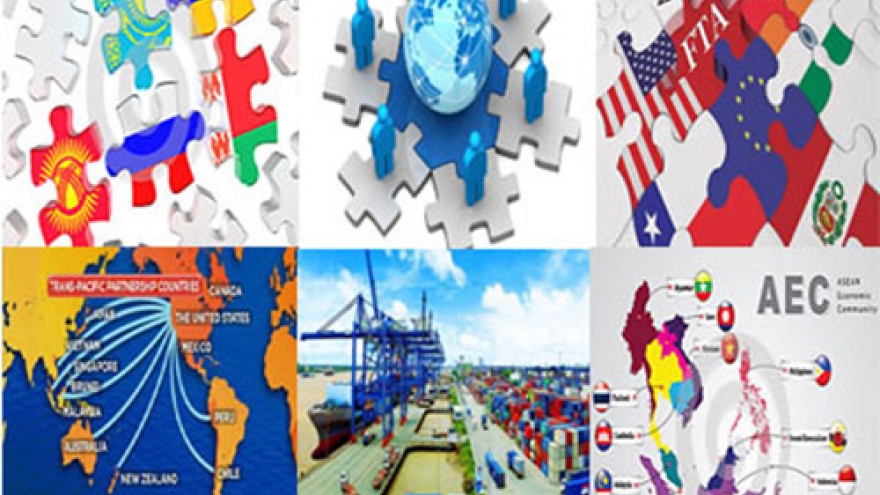Vietnam faces challenge of reinventing itself
VOV.VN - The lack of a timely and coherent strategy by local companies to cope with regional and global integration has given rise to increasing doubts about the process and the nation’s ability to successfully navigate the transition.
Recently Dr Tran Du Lich, a member of the National Assembly’s Economic Committee sat down for an exclusive interview with a VOV reporter to expound upon opportunities and challenges integration poses to local businesses.
Following are key translated excerpts capturing the gist of the interview.
VOV: Can you give us your insight on where Vietnam as a nation stands in the integration process?
Mr Lich: In the international integration process, the Vietnam government has passed and begun to implement many new laws and regulations to assist in the Doi Moi reform and make the transition to a more industrialized nation.
Having overcome macro-economic instability, the nation enters 2016 with a relatively stable macro-economy for which inflation has been contained and the banking system is slowly recovering.
Additionally, the business environment has been vastly improved making it more conducive to the desires of foreign businesses and as a result the nation has seen significant foreign direct investment.
The government has signed a large number of free trade agreements that hopefully will provide opportunities for local businesses to expand their overseas markets and compete in the international marketplace.
Yes, there is legitimate concern that local businesses are not proactively taking advantage of the opportunities these trade agreements offer, but I think in time businesses can adapt.
VOV: What advice would you offer local businesses?
Mr Lich: In the integration process, the government provides the key role of leadership and creates a politically stable business climate in which businesses can flourish. However, to gain success, businesses must do their part to institute needed reform.
 |
In short, they must become more competitive.
VOV: To successfully transition to the new integrated economic marketplace, a number of barriers must be overcome. What, in your opinion, is the biggest barrier the nation faces?
Mr Lich: Despite great effort, a large number of negatives still remain. Most notably, the nation’s work forces are not adequately equipped with the proper skillsets necessary to compete in an integrated world.
Vietnam has thousands of university graduates with bachelor and master’s degrees but they still lack even the most basic of language and interpersonal skills necessary to fill key management positions in the business community.
I wholeheartedly think that this is the biggest challenge. If we believe in ourselves and can reinvent ourselves, we will gain success.
VOV: Many observers comment that economic restructuring must be sped up. Do you agree, and if so, what other fields do you think the nation should focus on?
Mr Lich: The Resolution of the 12th National Party Congress emphasizes the need for further renovation and reform for economic institutions, personnel training, and infrastructure.
The National Assembly has revised a series of laws affecting these three key areas but giving effect to them to bring about practical change depends on human initiative—that is on people.
Comprehensively implementing this resolution has not been completed as of yet and I believe it should be the number one priority for the government, business and civil society to focus on.
VOV: In the integration process, you have said in the past that economic independence is essential. What does economic independence cover?
Mr Lich: To ensure economic independence, the gross national product (GNP) as opposed to the gross domestic product (GDP) must be improved. Far too many people don’t understand these terms.
GNP is the total goods and services produced by local businesses, excluding foreign invested businesses during a period of time, whereas the GDP incudes goods and services produced in the nation – by both local and foreign businesses.
To ensure economic independence, we as a nation need to focus on ensuring that GNP stays high. In other words, we need to insure that the total of goods and services produced annually by local businesses is high.
Currently, the GNP is far too low in comparison to other countries, which is our national weakness.
VOV: Thank you very much.



